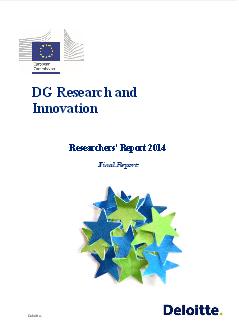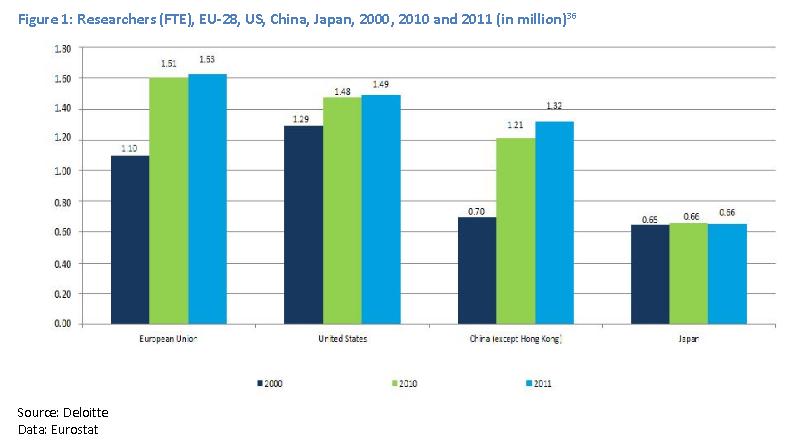European Commission (2014) Researchers’ Report 2014, DG Research and Innovation, Deloitte, September.
The conditions for the completion of the European Research Area, as requested by the European Council (Member States are adopting the necessary reforms, research stakeholders are implementing the ERA actions, the Commission increased its support to ERA through Horizon 2020 and the monitoring mechanism has been agreed and established) are now in place. The ERA Progress report 2014 presents the areas where further effort is needed.
An open and attractive labour market for researchers is a key priority of the European Research Area (ERA) where researchers and knowledge can move freely from one country to another. Significant progress has been made at both European and national level in removing or alleviating some of the obstacles to mobility, improving doctoral training and making research careers more attractive.
Across the EU, Member States and/or institutions have introduced a range of measures, programmes, strategies and legislative acts to address the barriers and train researchers to meet their national R&D targets.
A series of EU policy initiatives such as the development of the EURAXESS network, the ‘Scientific Visa Directive’, a Human Resources Strategy for Researchers based on the Charter and Code, the Principles of Innovative Doctoral Training and support for a new pan-European supplementary pension fund for researchers have also contributed to this progress. Marie Skłodowska-Curie actions (MSCA) have also set standards for research training, attractive employment conditions and open recruitment for all EU-researchers.
Progress has nevertheless been uneven and there remain substantial differences between the Member States. A number of challenges remain in particular in a number of Member States where there is a lack of open, transparent and merit-based recruitment, where some early-stage researchers are ill-equipped for the labour market or where working conditions are relatively poor or where career opportunities are rather limited.
Further efforts are needed by Member States and institutions, with the support of the Commission, to remove the remaining obstacles to researcher mobility, training and attractive careers.
This third annual report monitors what Member States and Associated Countries are doing to remove those obstacles, relating this to compliance with the Innovation Union commitments affecting researchers and actions related to an open labour market for researchers in the 2012 ERA Communication on a Reinforced European Research Area Partnership for Excellence and Growth.





